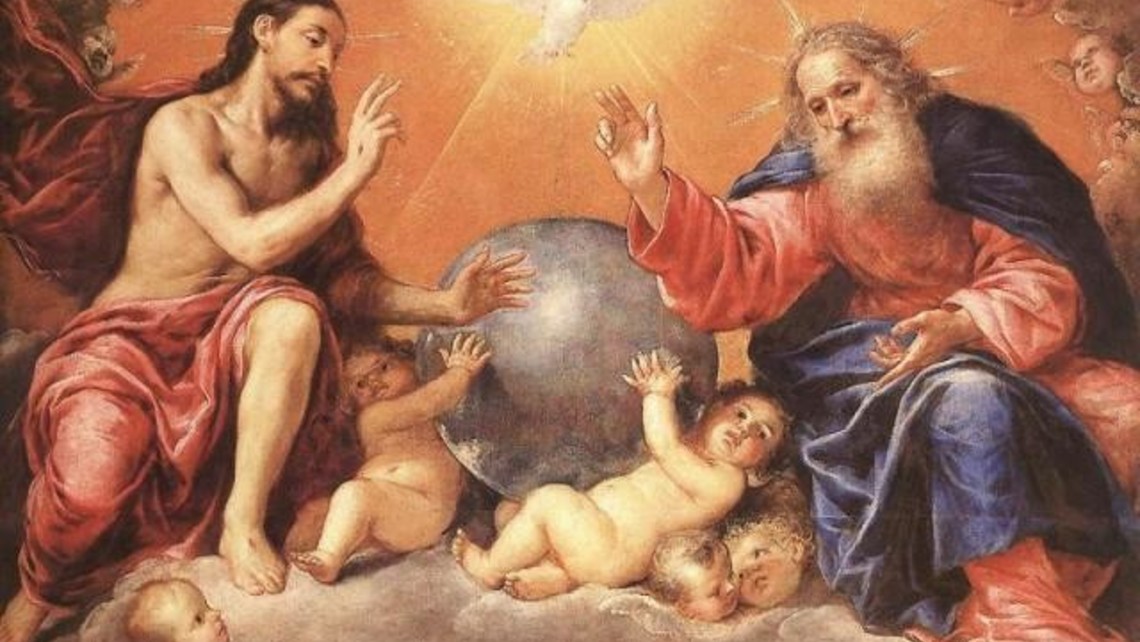
Our human identity is intimately linked to the sacrament of Baptism. This may come as a surprise to some but the reality of our existence is intertwined to this first sacrament of initiation because it provides us with a rebirth as sons of God. In other words, through baptism we are incorporated into the life of Christ. This may sound like a Protestant understanding of baptism but the Church is quite clear and definitive in its teaching of this first sacrament of initiation (CCC 1213). Intimate to this understanding of rebirth is the freedom from sin and our incorporation into the Church sharing in Christ’s redemptive mission on the cross.
Baptized into Christ’s Death
When we hear the phrase “baptized into his death” the two-fold question is; “why his death and how?” St. Paul explains it this way: “Do you not know that all of us who have been baptized into Christ Jesus were baptized into his death? We were buried therefore with him by baptism into his death, so that as Christ was raised from the dead by the glory of the Father, we too might walk in newness of life.” (Rom 6:3-4) The meaning behind “baptized into his death” refers the shedding of the stain of original sin which is buried in the water used for Baptism. Christ was baptized to initiate his journey in freeing humanity from the bondages of sin and thus our baptism in the name of the Father, Son and Holy Spirit allows us to become partakers of Christ death. If we are baptized into Christ’s death, then we are also baptized into His life as witnessed by His resurrection (Easter).
Our Christian Initiation
St. Paul again reminds us that the baptized have “put on Christ” (Gal 3:27; CCC 1228) This means that baptism serves as a means to purify, justify and sanctify (1 Cor 6:11; CCC 1228). If we take a closer look at this three-fold understanding of baptism it describes the stages by which we as children of God grow and mature into a deeper relationship with Him. This process of conversion so to speak is what we would call “Christian Initiation” or how the Church currently defines this process as the Rite of Christian Initiation for Adults (RCIA).
All of us baptized or unbaptized have an opportunity to journey toward and with Christ. This journey contains several essential elements e.g. proclamation of the Word, acceptance of the Gospel, entailing conversion, profession of faith, baptism itself, the outpouring of the Holy Spirit and admission to Eucharistic communion (CCC 1229).
Why Renew our Baptismal Promises?
So, it begs to question, if we are already baptized and have made a profession of faith either via our parents at infancy are as catechumens (unbaptized Christians) isn’t this sufficient? As outlined in the stages of the Christian initiation process, our identity as baptized Catholics simply does not end at Baptism. Baptism alone does not completely satisfy the appetite of our being to seek Christ in a more intimate way. It opens the door to seek a genuine and edifying communion with Christ that can only be accomplished by taking the first step toward Christ in Baptism. Our post-baptismal journey requires us to continually seek and live out a more mature response to God’s love for us. The faith required for baptism is not a perfect and mature faith, but a beginning that is called to develop (CCC 1253).
The maturation the Catechism refers to is our willingness to grow in faith with Christ especially through sacramental life i.e. frequent reception of the sacrament of confession and our active participation in receiving Christ in the Holy Eucharist at Mass. Reborn as sons of God, we the baptized must profess before men the faith they have received from God through the Church and participate in the apostolic and missionary activity of the People of God (CCC 1270). Thus, we renew our baptismal promises:
· to openly and directly reject the temptation of sin, the devil himself and his empty promises.
· to publicly and openly profess our faith to Jesus Christ the Son of the living God who died for our sins and founded the one, holy, catholic and apostolic church.
· to grow in sanctity to hear our Lord more clearly.
· to be Christ-like to others.
· to prepare for our final resting place with God.
St. Gregory of Nazianzus beautifully and succinctly summarizes the gift of renewing our baptismal promises in the following way: “Baptism is God’s most beautiful and magnificent gift.”






